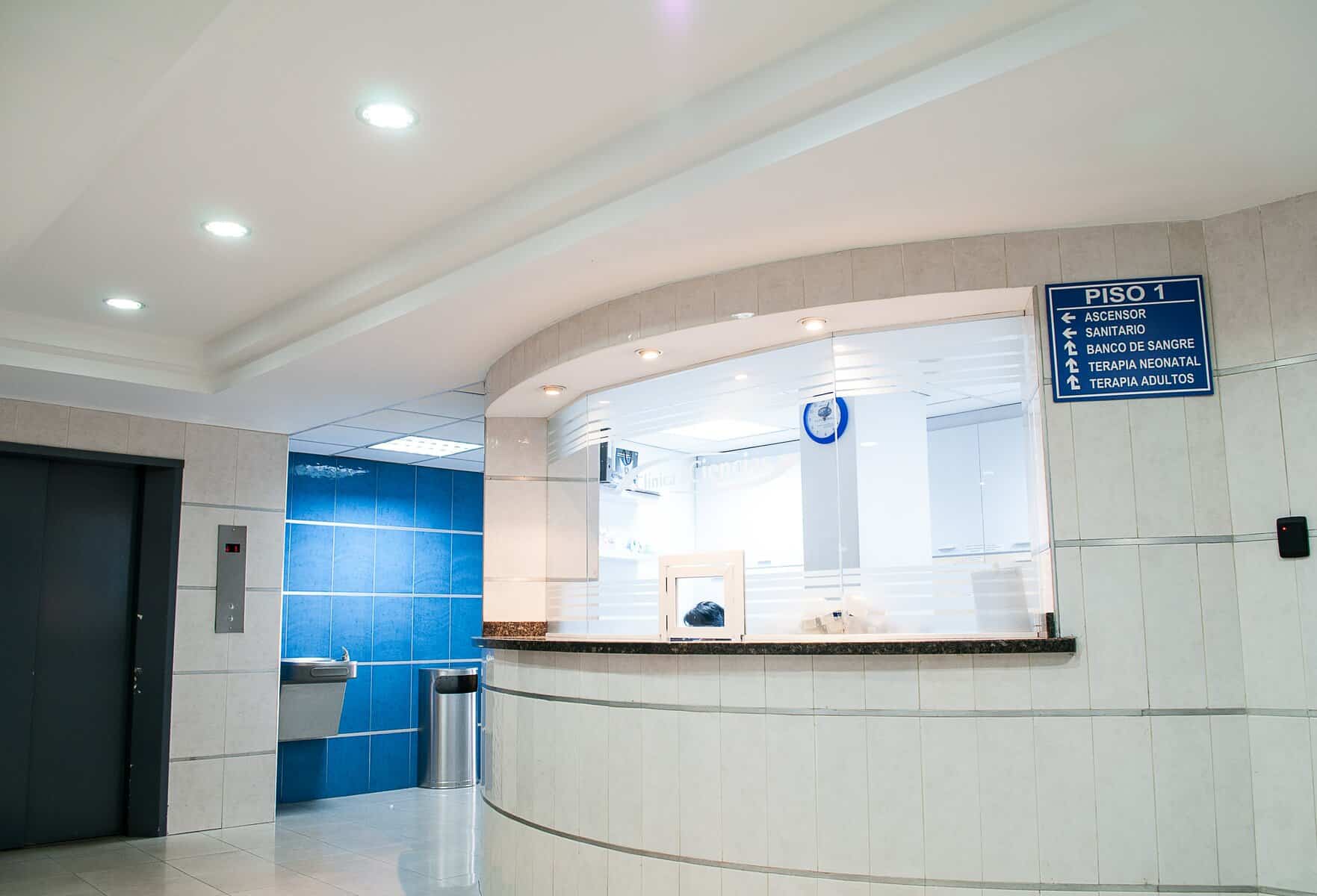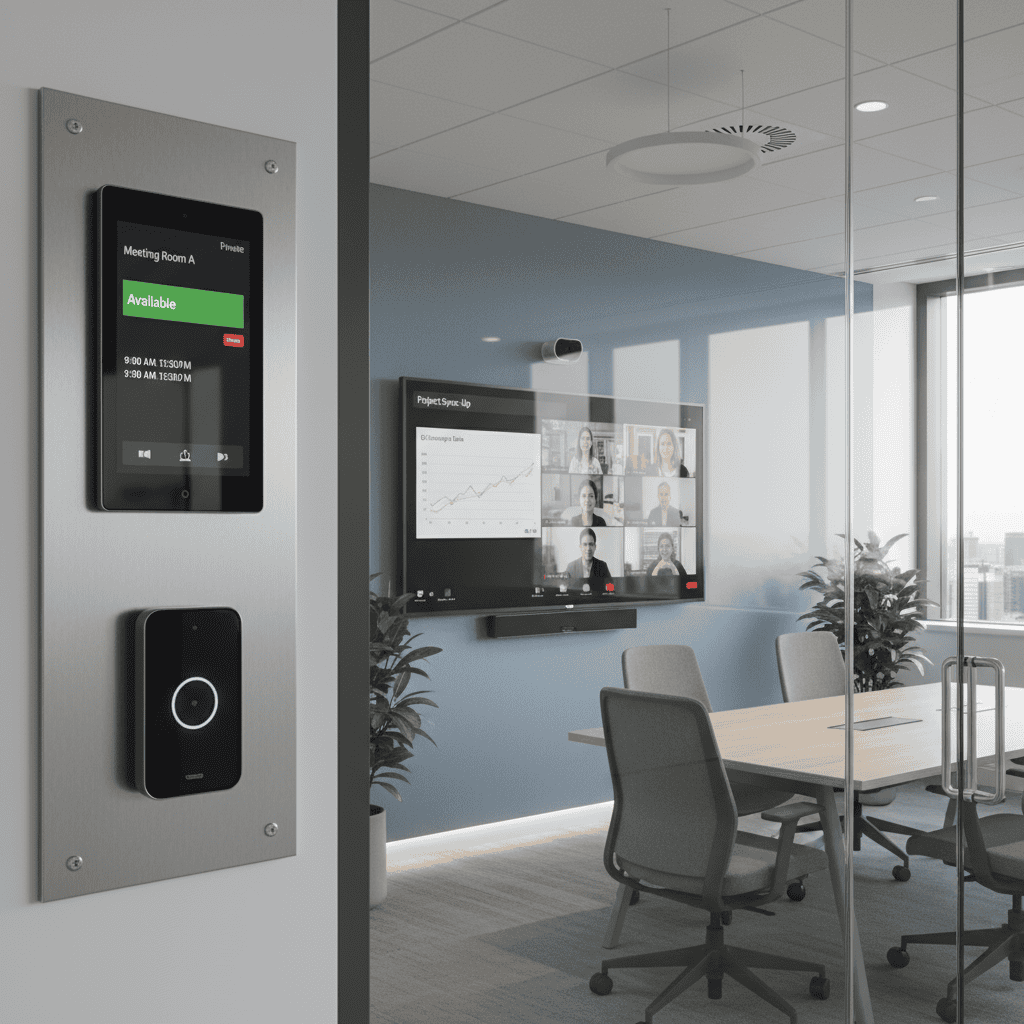Hospital Security: Systems That Save Lives And Money

Every day hundreds of visitors will pass through a hospital. Some as patients, some as staff, and some as hospital visitors; Each one needing access to a different section of the hospital. Controlling the flow and access should be a top priority security concern for any hospital.
There are five main areas that a hospital security system needs to address, with the understanding that your security, IT, and finance departments need to coordinate very closely to achieve success. A hospital command center is also a good way to bring all the necessary elements together.
Visibility
First and foremost your security team needs visibility into the organization as a whole. An obvious security system is often deterrent enough for many bad actors. There are three systems that you should evaluate.
Video Surveillance
More than just putting up security cameras to deter malicious actors from working in the dark, video surveillance allows you to monitor patients, staff, and the campus as a whole. The complexity of a hospital can be simplified by bringing video feeds from across the campus into one place. Logging video footage is also a useful precaution in the event of incidents that require hard evidence.
Access Control
Restricted access is fundamental to running a hospital. Operating rooms, pharmaceutical storage, maternity wards, and mental health wards are just some of the areas that need to be controlled. Implementing an RFID badge system allows you to protect the right areas and log traffic to important areas. Only 42% of hospitals report currently having a visitor-management system.
Security Staff
Many hospitals have a steady police presence, but it is important for the hospital to have dedicated security personnel who have an understanding of the hospital’s systems, training programs, incident response plans, and patient safety protocol.
Intercom Systems
While a public address system is fairly standard for most hospitals, it’s worth taking that concept even further: set up an intercom system using portable radios. This allows for discreet communication between staff and ensures everyone is reachable wherever they’re working.
Traceability
Patient Tracking
Along with access control, patient tracking is another hospital fundamental. In fact, 91% of hospitals plan to implement some form of behavioral tracking. Wristbands with scan codes allow you to monitor patient progress, coordinate with their care with their medical records, and minimize the risk of administering the wrong medication. However it’s worth looking at ways to use this data as a component of your overall security ecosystem (where legally appropriate, of course).
Inventory Management
Pharmaceuticals and supplies are two things that could be easy to lose track of, and while a missing box of gloves is merely a costly annoyance, stolen medicine (or administering the wrong medication) can become a massive liability and danger to the community. Look for ways to integrate your inventory management processes with your security ecosystem. This could include alerts on sensitive or expensive medicines as well as allow you to identify abnormal supply levels.
Equipment Tracking
Advanced medical devices are literally a matter of life and death for hospitals and deserve to be tracked the same way you would any other valuable resource. Additionally, personal health information is highly sensitive, so controlling access and tracking computer systems should be a top concern for any hospital.
Safety
The psychological and physical safety of your patients and staff are of the utmost importance. Patients can’t heal properly if they’re in fear for their safety, and staff can’t perform their jobs properly if they have to worry about their own wellbeing.
Protection
Like it or not, many of the patients and accompanying visitors at a hospital are in crisis. People in crisis are prone to making highly irrational decisions that can put other people in harm’s way. Additionally, hospitals can act as the first stop for patients suffering from a mental illness. In a recent study, 40% of hospital workers report having been assaulted while on the job. Enhance your security ecosystem to respond to threats of violence or deranged intruders.
Patient Comfort
Victims of violence may still be at risk for continued violence from the perpetrator. It’s essential that you have processes in place to protect vulnerable patients and give them peace of mind for their recovery.
Compliance
Regulatory compliance is another area that you can’t skimp on. Patient data should be treated like a valuable resource that needs a high level of protection.
Data Security
Especially as the threat of ransomware attacks grows more common and serious, hospitals need to treat cybersecurity as a top priority. Controlling physical access to computers and data storage centers is critical, as is ensuring hospital staff members are trained on how to report suspicious activity to a hospital security officer.
Government/Legal Compliance
HIPPA is a major concern for every hospital. By taking the time to examine how data flows through your organization, you take the opportunity to make improvements to security and compliance.
Hospital Security Saves Money
Many of the security solutions discussed in this blog are worth doing for the obvious benefits they bring to your hospital organization. What you may not realize is that many of them have the potential to save your hospital significant amounts of money over the long term.
Loss Prevention
Supply and pharmaceutical inventory losses can amount to hundreds if not thousands of dollars a year for a large hospital. A fully integrated digital inventory management system can help you cut that number down dramatically.
Evidence Production
In the event of lawsuits or crimes committed on your hospital campus, your video surveillance system can provide conclusive proof about what happened.
Headcount Reduction
In the case of patients who require constant visual monitoring, such as those who are mentally unstable, you can use the video surveillance system to equip a single individual to watch multiple patients at once.
About i.e.Smart Systems
i.e.Smart Systems is a Houston, TX based technology integration partner that specializes in design and installation of audio/visual technology and structured cabling. For more than three decades, our team of in-house experts has partnered with business owners, architectural firms, general contractors, construction managers, real estate developers, and designers in the Houston market, to deliver reliable, scalable solutions that align with their unique goals.




